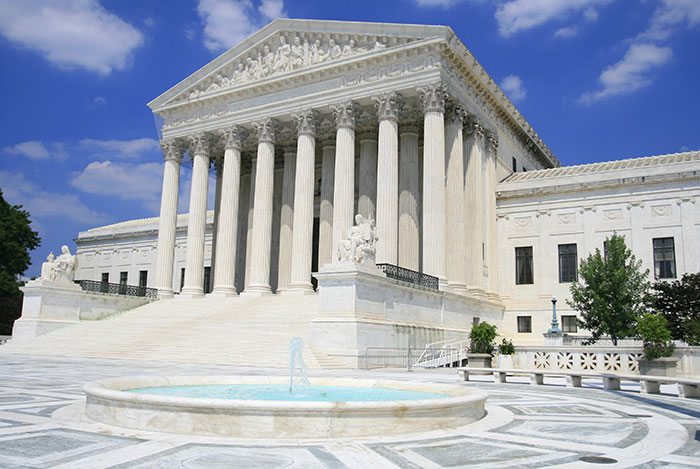Most people are aware that if they are arrested for driving under the influence or assaulting someone that they are going to be taken to the city or county jail. There, they’ll be processed before being offered bail. If they can’t afford to pay the full bail amount they then have the right to engage the services of a bail bondsman to help. But what if you or your loved one is not arrested for violating state or local laws? What if you or they are arrested for violating federal laws? Is the process the same? Are they taken to the same jail and processed in the same way? And most crucially, what about bail? Does it work the same way as it does for violations of state law?

What are Federal Charges?
There are several instances when a person may be accused of violating federal law. They may, for instance, be an undocumented alien, having illegally entered the United States from another country. They may, during the commission of a crime, have violated not only local gun laws but federal gun laws as well. They may have crossed state lines while in the process of committing a crime. For instance, if they kidnapped someone in one state and brought them to another state. Or they may have committed a crime on federal land. All these instances and more have the potential to result in federal criminal charges being brought against a suspect. When federal charges are filed the case, including the bail process, typically becomes more complex.
How Federal Charges Differ From State Charges
For the most part the difference between federal and state charges have to do with who will be prosecuting the case.
- If the person is accused of violating state law the local prosecutor in the jurisdiction where the crime allegedly occurred will be empowered to bring charges against the accused. Once that happens state bail provisions will apply.
- If the person is accused of violating federal law however, the local prosecutor is bypassed and the charges originate in federal court. In cases involving state law a person will often be offered bail while in jail before ever appearing before a judge. In federal cases however, the accused must wait to appear before a federal judge before being offered bail. Also, bail amounts in federal cases are often higher than they are in state cases.
Keep in mind too that if the suspect was arrested by local or state police, rather than federal agents, and brought to a city or county jail in Adams County, Broomfield County, Weld County or Denver the federal government will likely request the person be transferred to federal custody. Which further complicates matters.
The Difference Between Federal and State Bail Bonds
The main differences between state and federal bail are:
- You’re not going to be offered bail in a federal case until you see a federal judge.
- The amount of bail you pay in a federal case is going to be higher than it is in a state case.
- The bail bondsman is almost never used in federal cases.
Why Federal Bail Amounts are Higher
Bail amounts in federal cases tend to be higher for a couple of reasons that actually make perfect sense once you understand them.
- First, the long arm of federal law projects into every corner of every state in the union. That’s an impressive feat. However, the logistical challenges of running such a widespread enterprise are formidable and the costs of keeping it all running equally formidable. So just about everything to do with the federal justice system is going to be more expensive, including bail.
- Second, it is much harder for the feds to keep track of someone after they are bailed out then it is for local or state police. Think about it. There are only 6 federal courts in all of Colorado. Whereas there are 22 district courts spread out across the state. In addition, there are thousands of uniformed state and local police on the ground in Colorado to enforce state and local laws and to keep track of those bailed out on state charges. But only a relative handful of federal officers. Therefore, federal suspects are considered higher flight risks than state suspects simply because there aren’t enough federal officers on the ground to keep an eye on them.
As a result a person charged with a federal crime will likely have a higher than expected bail set by the judge. They can also expect to have to pony up 15 percent of the total rather than 10. And that 15 percent likely won’t be going to a bail bonding agent. Instead, it will go directly to the government and be credited toward the full bail amount. The amount of collateral will also be raised, typically to 150 percent of the bail amount. If you jump bail you will forfeit your 15 percent deposit and the rest will be collected from those who cosigned your bond agreement.
And one more thing regarding the difference between the state and federal bail systems.
In order to ensure bail money is not coming from funds gained through illegal activity the federal bail system adds one more hearing to the process that isn’t present on the state level. This is the Nebbia hearing during which the origin of the bail funds is put under the microscope to determine their legitimacy.